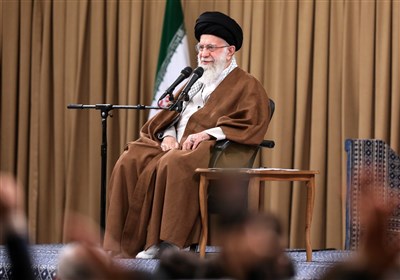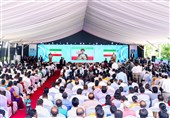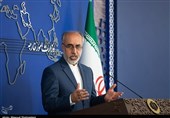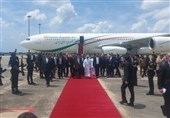Sudan’s Problems Not to End If Corruption Continues: US Analyst
TEHRAN (Tasnim) – A senior political expert based in the US city of Atlanta highlighted the reasons behind a recent military coup in Sudan and said if the corruption in the North African nation does not end, “then neither will the country’s problems”.
“Political allegiances can change quickly and often, if enough money is put on the table, and that includes being given control over ministries which are fountains of graft,” Jim W. Dean, the managing editor of VeteransToday.com, told Tasnim in an interview.
“The suitcases with millions of Euros in them found at al-Bashir’s house are the most recent example,” he said, adding, “Apparently, he left home in a hurry, or was afraid to risk picking them up.”
“No matter who takes over, if the corruption never ends, then neither will the country’s problems.”
Jim Dean is a regular geopolitical commentator on various media outlets around the world. He and Sr. Editor Gordon Duff have begun their own bridge building campaign with Iranian university youth via Skype conferences. Jim comes from an old military family going back to the American Revolution.
Following is the full text of the interview:
Tasnim: Sudan's President Omar al-Bashir was recently removed by a military coup after months of anti-government protests against his three-decade rule. A military council led by Lieutenant General Abdel Fattah al-Burhan is now in power and says it will oversee a transitional period that will last a maximum of two years. What do you think about the latest developments in the African country? How do you predict the future of the developments? Would the military council hand over the power to a democratic government?
Dean: We have the expected standoff, where the opposition wants power turned over immediately, which can be a destabilizing situation to have the entire government turned over. The military made a mistake with its initially stating a two-year transition period.
That is plenty of time for them to loot the country and retire, which the opposition does not want. A six-month transition would be plenty of time to avoid the chaos of having too many new people come in at once. Hopefully, both sides will compromise for the good of the country, so it can move forward.
But the military may be stalling, hoping the infighting will develop inside the opposition camp, so it will not be able to present a united front. So far, it is holding firm.
Tasnim: According to media reports, there have been some meddlesome measures by Saudi Arabia and the UAE in Sudan. However, Sudanese protesters have declared their strong opposition to the two countries. What do you think about the future of relations between Sudan and the two Arab countries and do you think that the next Sudanese government would be an ally of the two?
Dean: Sudan was historically part of Saudi Arabia, and that cannot be ignored as part of the history. Neither can their pocketbooks be ignored. The borders are just lines in the sand drawn by colonialist military powers and were designed to keep the tribes separated and at each others’ throats, making them easier to rule over.
There is a somewhat realistic background chatter going around that all leaders and potential leaders in the Arab Mideast have a price written in invisible ink on their foreheads. This is based on the long history of leaders being bought off by outside powers, in a variety of ways. Political allegiances can change quickly and often, if enough money is put on the table, and that includes being given control over ministries which are fountains of graft.
The suitcases with millions of Euros in them found at al-Bashir’s house are the most recent example. Apparently, he left home in a hurry, or was afraid to risk picking them up. No matter who takes over, if the corruption never ends, then neither will the country’s problems.
Tasnim: As you know, Sudan is part of Saudi Arabia's disastrous military campaign against Yemen. Given that a huge number of the Saudi-led coalition forces fighting in Yemen are Sundanese, what do you think about the effect of developments in Sudan on the protracted war on Yemen?
Dean: Saudi Arabia is using the Sudanese mercenaries because the Saudi army has no stomach for fighting. It is made up with what we call “paycheck soldiers”, ones that could not fight their way out of a paper bag. The Sudanese are not only the cheapest on the market but include large numbers of children.
This is a multi-phase international crime, but one for which the Saudis will never be called to account, at least not for now. But for those young boys who survive the Yemen war, reverting back to a civilian life of unemployment and poverty will not be agreeable to them.
When boys of this age become gunmen, as they transition to their late teens and manhood, they will be vulnerable to being used as cannon fodder in the next war. Sadly, the old anti-war Intel professionals see no end to that, as chaos and regime change are the weapons of choice by the unipolar power and its allies.
Only a coalition can stand against an offensive coalition; and Iran, Syria, and Iraq have to get their defensive one going as quickly as possible. Hence, you will see the US, NATO, Israel and the Persian Gulf States trying to delay that process to their utmost ability.






